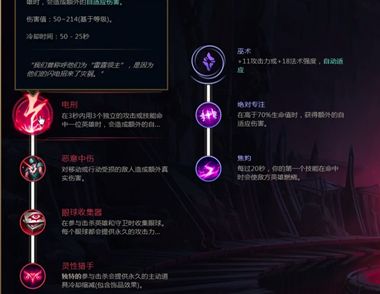FastReport问题集
下面图老师小编跟大家分享FastReport问题集,一起来学习下过程究竟如何进行吧!喜欢就赶紧收藏起来哦~
Q: 我怎样添加我的自定义函数?
A: 使用 TfrReport.OnUserFunction 事件. 这里有一个简单的例子:
procedure TForm1.frReport1UserFunction(const Name: String;
p1, p2, p3: Variant; var val: Variant);
begin
if AnsiCompareText(‘SUMTOSTR‘, Name) = 0 then
val := My_Convertion_Routine(frParser.Calc(p1));
end;
然后,你就可以在报表(任何表达式或脚本)的任何地方使用 SumToStr 函数了。
Q: 但是它仅仅能工作在一个TfrReport组件中。可我想在任何地方(在所有的TfrReport组件中)使用的我的自定义函数?
A: 使 OnUserFunction event 句柄作为所有组件的公用句柄。如果你不能做到这一点,你需要创建函数库:
type
TMyFunctionLibrary = class(TfrFunctionLibrary)
public
constructor Create; override;
procedure DoFunction(Fno: Integer; p1, p2, p3: Variant;
var val: Variant); override;
end;
constructor TMyFunctionLibrary.Create;
begin
inherited Create;
with List do
begin
Add(‘DATETOSTR‘);
Add(‘SUMTOSTR‘);
end;
end;
procedure TMyFunctionLibrary.DoFunction(Fno: Integer; p1, p2, p3: Variant;
var val: Variant);
begin
val := 0;
case Fno of
0: val := My_DateConvertion_Routine(frParser.Calc(p1));
1: val := My_SumConvertion_Routine(frParser.Calc(p1));
end;
end;
要注册函数库,调用
frRegisterFunctionLibrary(TMyFunctionLibrary);
要卸载函数库,调用
frUnRegisterFunctionLibrary(TMyFunctionLibrary);
Q: 我怎样将我的函数添加到函数列表中 (用表达式生成器)?
A: 使用 frAddFunctionDesc 过程 (在FR_Class 单元中):
frAddFunctionDesc(FuncLib, ‘SUMTOSTR‘, ‘My functions‘,
‘SUMTOSTR(Number)/Converts number to its verbal presentation.‘);
注意: "/" 符号是必须的! 它从它的描述中分隔函数语法。
FuncLib 被声明为你自己的函数库 (如果你不使用函数库可以将其设置为nil). 当函数库未注册时,所有它的函数将自动从函数列表中删除。
---------------- 使用变量 -------------------------------------
Q: 我怎样编程实现填充变量列表(在数据词典中)?
A: 数据词典中的所有变量及分类都被存储在 TfrReport.Dictionary.Variables 中.
with frReport1.Dictionary do
begin
// 创建分类(名称用空白)
Variables[‘ New category‘] := ‘‘;
// 创建变量
Variables[‘New Variable‘] := ‘CustomerData.Customers."CustNo"‘;
Variables[‘Another Variable‘] := ‘Page#‘;
end;
Q: 我定义了字符串变量:
with frReport1.Dictionary do
Variables[‘Month‘] := ‘March‘;
但是当我运行报表是,出现了错误,为什么?
A: 因为 FastReport 假定数据词典中的字符串变量值是一个表达式,它需要分析、计算它。
可以使用其它的方法:
with frReport1.Dictionary do
Variables[‘Month‘] := ‘‘‘‘ + ‘March‘ + ‘‘‘‘;
或者, 使用 frVariables 来传输固定数据到报表。
Q: 我不想在数据词典中显示某些数据集?
A: 使用 TfrReport.Dictionary.DisabledDatasets:
with frReport1.Dictionary do
begin
// 关闭该数据集
DisabledDatasets.Add(‘CustomerData.Bio‘);
// 或者, 关闭整个数据模块/窗体
DisabledDatasets.Add(‘CustomerData*‘);
end;
Q: 我怎样将数据传送到报表?
A: 有几个方法可以实现它. 第一是使用全局对象 frVariables (在 FR_Class 单元中被定义):
frVariables[‘My variable‘] := 10;
这段代码创建了一个名称为“My variable”,值为 10 的变量。这是最好的传输固定数据的报表的方法。
第二种方法是使用 TfrReport.OnGetValue 事件. 这可以使用这个方法来传送动态数据、记录等。
procedure TForm1.frReport1GetValue(ParName: String; var ParValue: Variant);
begin
if ParName = ‘MyField‘ then
ParValue := Table1MyField.Value;
end;
最后, 第三种方法是通过编程在数据词典中定义变量(可以参考以前的问题):
with frReport1.Dictionary do
begin
Variables[‘MyVariable‘] := ‘CustomerData.Customers."CustNo"‘;
Variables[‘Another Variable‘] := ‘10‘;
end;
Q: 我能在报表和程序间传送数据吗?
A: 使用 frVariables 对象. 如果你在报表的任何对象的脚本中写入以下代码:
MyVariable := 10
那么,在你的程序中,你可以使用以下代码来获取 MyVariable 的值:
v := frVariables[‘MyVariable‘];
---------------- 脚本 (FastReport Pascal) ---------------------------------
Q: Band 中是否可以使用脚本?
A: 当然. 选择 band ,然后按 Ctrl+Enter 或在对象浏览器中选择 "OnBeforePrint" 属性。
Q: 报表页中是否可以使用脚本?
A: 当然. 选择页 (在空白处单击) ,然后在对象浏览器中选择 "OnBeforePrint" 属性。如果该页是一个对话框窗体,那么这个属性就是 "OnActivate".
Q: 我有两个对象: Memo1 和 Memo2. 我能否在 Memo1 的脚本中调用 Memo2 的属性和方法?
A: 当然, 例如,你可以这样做: 对象名.属性名.
Q: 在脚本中,我可以使用对象的哪些属性?
A: 几乎所有你能在对象浏览器中看到的属性。例如,可以使用 Font.Name, Font.Size等来存取字体属性。
---------------- 其它问题 --------------------------------------------
Q: 怎样改变多页报表中某一页的顺序?
A: 拖动页标签到目的位置。
Q: 我想查看所有的字段及变量,我想在报表中使用列表来实现它?
A: 设置 TfrReport.MixVariablesAndDBFields := True.现在,所有的数据字段及变量可在“插入数据字段”对话框中可存取了。
Q: 我不想显示导入选项对话框?
A: 在导入组件(比如,TfrTextExport)中设置所有必需的选项,然后通过设置ShowDialog属性为False来关闭此对话框。
Q: 为什么 TotalPages 变量不起作用? 它总是返回 0.
A: 在你的报表中设置 Two-pass 选项. 要设置它,你需要在报表设计器的“文件”菜单中,打开“报表选项”对话框。
Q: 我用BLOB字段来存储我的报表。当我运行报表设计器时,它显示我的报表未命名?
A: 在运行报表设计器前,这样做:
frReport1.FileName := ‘Name of my report‘;
Q: 我想在重新定义报表设计器中的“打开”及“保存”按钮的功能?
A: 查看 TfrDesigner 组件. 它有几个必需的事件: OnLoadReport 和
OnSaveReport. 这里有一小段代码例子:
procedure TForm1.frDesigner1LoadReport(Report: TfrReport;
var ReportName: String; var Opened: Boolean);
begin
with MyOpenDialog do
begin
Opened := ShowModal = mrOk;
if Opened then
begin
Report.LoadFromBlobField(…);
ReportName := …;
end;
end;
end;
procedure TForm1.frDesigner1SaveReport(Report: TfrReport;
var ReportName: String; SaveAs: Boolean; var Saved: Boolean);
begin
if SaveAs then
with MySaveDialog do
begin
Saved := ShowModal = mrOk;
if Saved then
begin
Report.SaveToBlobField(…);
ReportName := …;
end;
end
else
Report.SaveToBlobField(…);
end;
Q: 在 QR 中, 我可以写这样的代码: QRLabel1.Caption := ‘Some text‘. 我可以用FR这样做吗?
A: FR 对象并不是一个组件 (这并不像 QR, RB). 但使用 TfrReport.FindObject 方法可以通过对象名称找到该对象。
var
t: TfrMemoView;
begin
t := TfrMemoView(frReport1.FindObject(‘Memo1‘));
if t nil then
t.Memo.Text := ‘FastReport‘;
end;
Q: 我想在用户预览(TfrPreview组件)中自定义热键?
A: 这个组件有个窗口: Tform 属性. 将自定义句柄指定到 Window.OnKeyDown 属性.
Q: Fast Report 2.4 不能装载 FreeReport 2.21 文件?
A: 这仅需要使用16进制数改变报表文件的第一字节,然后在源代码中修改下面的部分。在这些修改之后, 装载报表并保存它. 最后,返回到源代码处.
FR_Class:
function ReadString(Stream: Tstream): String;
begin
{ if frVersion = 23 then}
Result := frReadString(Stream) {else
Result := frReadString22(Stream);}
end;
procedure ReadMemo(Stream: Tstream; Memo: Tstrings);
begin
{ if frVersion = 23 then}
frReadMemo(Stream, Memo){ else
frReadMemo22(Stream, Memo);}
end;
FR_Utils:
procedure frReadMemo(Stream: Tstream; l: Tstrings);
var
s: String;
b: Byte;
n: Word;
begin
l.Clear;
l.Text := frReadString(Stream); exit;
Stream.Read(n, 2);
if n 0 then
repeat
Stream.Read(n, 2);
SetLength(s, n);
Stream.Read(s[1], n);
l.Add(s);
Stream.Read(b, 1);
until b = 0
else
Stream.Read(b, 1);
end;
function frReadString(Stream: Tstream): String;
var
s: String;
n: Integer;
b: Byte;
begin
Stream.Read(n, 4);
SetLength(s, n);
Stream.Read(s[1], n);
if (n 0) and (s[n] = #$0A) then
SetLength(s, n - 2);
// Stream.Read(b, 1);
Result := s;
end;
Q: 怎样不在打印预览中打印报表?
A: 这里有一段代码:
frReport1.PrepareReport;
frReport1.PrintPreparedReport(‘‘, 1, True, frAll);
或
frReport1.PrintPreparedReportDlg;
Q: 我想在报表中旋转图片。问题是这张图片是由我的应用程序生成的。是否有方法可以在打印前将这幅图片装载到报表中?
A: 使用 TfrReport.OnBeforePrint 事件:
if View.Name = ‘Picture1‘ then
TfrPictureView(View).Picture.LoadFromFile(…) 或
.Assign 或
.你所想要做的任何事情










